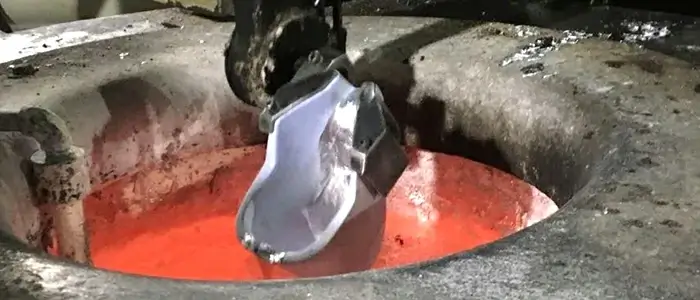Ceramic fiber ladles play a crucial role in various industrial processes, particularly in the metal casting and foundry industries. These ladles are specialized tools designed to handle and transport molten metal safely and efficiently. In this article, we will explore the significance of ladles, their construction, and the key advantages they offer in industrial applications.
Feature of Ceramic Fiber Ladles:
1. Construction and Materials:
Ceramic ladles are crafted from high-quality materials, with the primary component being ceramic fiber. This material is chosen for its exceptional heat resistance and durability. The ladles often have a reinforced structure using refractory materials to ensure they can withstand the extreme temperatures associated with molten metal.
2. Heat Resistance:
One of the standout features of ceramic fiber ladles is their exceptional heat resistance. These ladles can withstand temperatures that would cause conventional materials to fail. This makes them ideal for handling molten metal in applications such as metal casting, where temperatures can reach several thousand degrees Fahrenheit.
3. Versatility:
Ceramic ladles are versatile tools used in a variety of industrial processes, including the handling of molten aluminum, iron, steel, and other metals. Their design allows for precise pouring and controlled delivery of molten metal, contributing to the overall efficiency of the casting process.

Advantages of Ceramic Fiber Ladles:
1. Thermal Insulation:
The insulating properties of ceramic ladles contribute significantly to their effectiveness. These ladles can maintain their structural integrity and protect the user from extreme heat, providing a safer working environment in foundries and metal casting facilities.
2. Weight Reduction:
Compared to traditional ladles made from heavy materials, ceramic ladles offer a lightweight alternative. This not only improves the ease of handling but also reduces operator fatigue, enhancing overall efficiency in the workplace.
3. Durability:
The durability of ceramic fiber ladles ensures a longer lifespan, reducing the frequency of replacements. This durability is crucial in industrial settings where equipment is subjected to harsh conditions, contributing to cost savings over time.
4. Precision Pouring:
Ceramic ladles are designed for the precision pouring of molten metal, allowing for accurate casting and minimizing the risk of spills or defects in the final product. This precision is vital in industries where product quality is paramount.
Applications in Metal Casting:
Ceramic fiber ladles find widespread use in metal casting applications, including:
1. Foundries:
Used for pouring molten metal into molds for the production of various metal components.
2. Die Casting:
Essential for precise and controlled pouring of molten metal into die molds.
3. Metal Fabrication:
Employed in various metalworking processes where the controlled transfer of molten metal is required.
Conclusion:
In conclusion, ceramic fiber ladles are indispensable tools in industries that involve the handling of molten metal. Their unique combination of heat resistance, versatility, and durability makes them essential for ensuring safe and efficient metal casting processes. As technology continues to advance, ceramic ladles will likely play an even more significant role in shaping the future of industrial metalworking.

